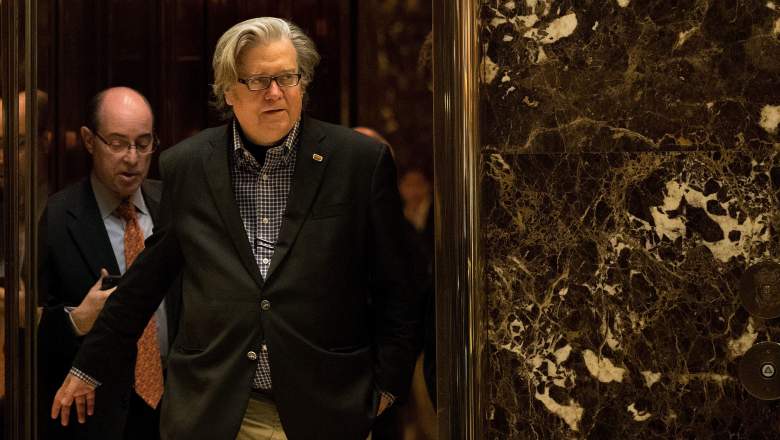
Trump advisor Steve Bannon leaves the President-Elect’s Manhattan residence. (Getty)
Throughout his campaign, Donald Trump and his allies made a repeated target of international investment bank Goldman Sachs, particularly in light of his rivals. Trump suggested that Ted Cruz‘s financial relationship with the bank would lead to undue influence:
He also suggested Hillary Clinton would be “totally controlled by Wall Street and all the people that gave her millions,” a reference to her multiple six-figure speaking engagements with several Wall Street Banks, notably including Goldman Sachs. He did not limit his criticism of the bank through the lens of his rivals: a campaign ad referring to a “global power structure” that “robbed our working class” featured a photo of Goldman Sachs CEO Lloyd Blankfein.
Upon taking office, however, Trump’s attitude toward the bank has softened significantly, and Trump has now selected four nominees with Goldman Sachs ties for prominent posts in his administration. On January 4, Trump announced that Jay Clayton, a Manhattan lawyer who represented the bank, would head the Securities and Exchange Commission, marking the fourth Goldman alumnus selected for such a role, joining Steve Bannon, Steven Mnuchin and Gary Cohn. Here’s a look at all four men and the roles they played at Goldman Sachs:
Steve Bannon
Incoming Chief Strategist and former campaign CEO Steve Bannon has generated more headlines for accusations of racism and alleged improprieties regarding his news site Breitbart’s relationship with Trump than his work at Goldman Sachs, the lowest-level of such work on this list. Bannon worked at Goldman Sachs through the mid to late ’80s, after stints at Harvard and in the Navy. Highlights of his tenure include the sale of film studio Castle Rock Entertainment to Ted Turner, through which Bannon entered the entertainment industry himself, leaving Goldman Sachs as a vice president. Despite his boss’s stated contempt for the bank, Bannon has praised the “camaraderie” at Goldman Sachs and its willingness to take him on when other Wall Street institutions balked at his lack of connections.
Bannon’s role was created by Trump and has no precedent.
Steven Mnuchin
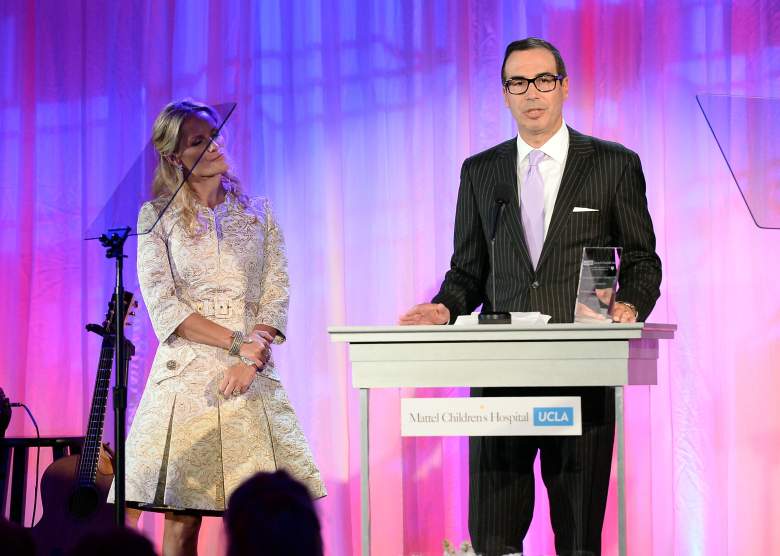
Steven Mnuchin receiving an award from UCLA’s Mattel Children’s Hospital. (Getty)
Former Goldman Sachs partner Steven Mnuchin was tapped by Trump to lead the Treasury Department in November 2016. Mnuchin followed his father, a 30-year banker, into the firm; he stayed for 17 years, from 1985 to 2002. Mnuchin also worked for liberal mega-donor George Soros’s hedge fund, and like Bannon dabbled in the entertainment industry, with notable production credits including American Sniper, The Lego Movie and Suicide Squad.
As Secretary of the Treasury, Mnuchin will act as “America’s banker,” overseeing the agency with the responsibilities of:
- Managing Federal finances;
- Collecting taxes, duties and monies paid to and due to the U.S. and paying all bills of the U.S.;
- Currency and coinage;
- Managing Government accounts and the public debt;
- Supervising national banks and thrift institutions;
- Advising on domestic and international financial, monetary, economic, trade and tax policy;
- Enforcing Federal finance and tax laws;
- Investigating and prosecuting tax evaders, counterfeiters, and forgers.
Gary Cohn
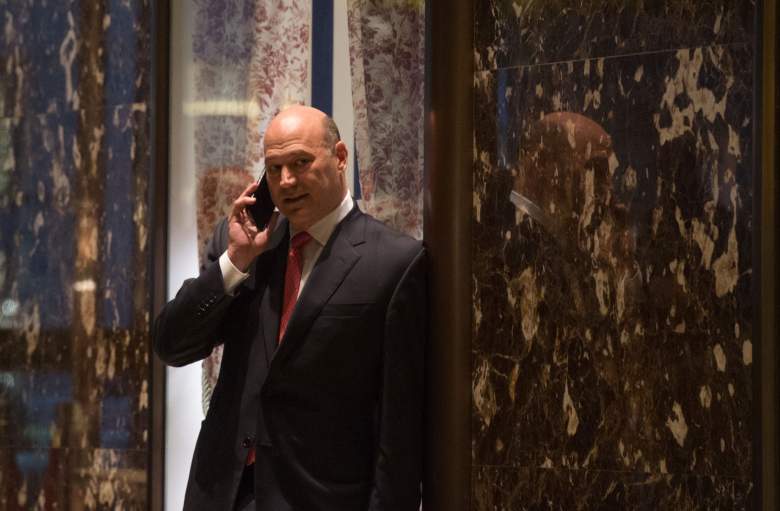
Gary Cohn before a meeting at Trump Tower. (Getty)
Cohn is the current President and COO of Goldman Sachs and Trump’s selection to head his Council of Economic Advisors. Cohn, a registered Democrat and former Clinton donor, has been with the bank since 1990 and in his current role, second only to Blankfein, since 2006, though he reportedly may leave with or without an offer from Trump.
The Council Cohn would head exists to give “objective economic advice on the formulation of both domestic and international economic policy.” Trump has drawn fire for relying largely on businessmen as economic advisors rather than traditional, PhD-holding economic experts; Cohn, who holds a Bachelor’s degree in business, would continue that trend.
Jay Clayton
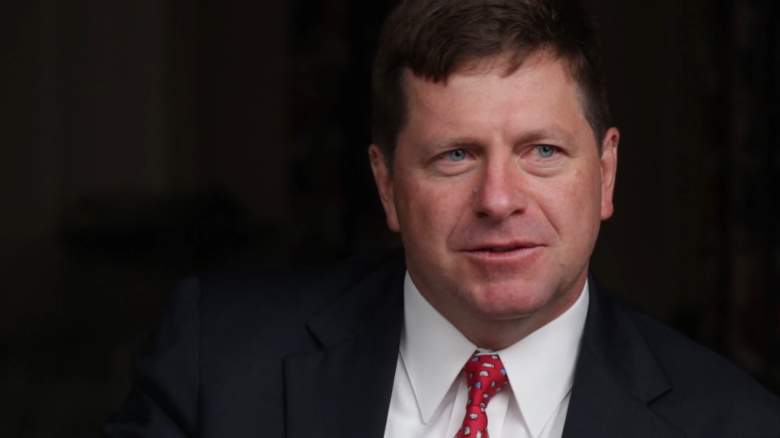
Jay Clayton, partner at Sullivan & Cromwell. (YouTube)
Though news reports have counted among the “Goldman Sachs alumni” in Trump’s administration, Clayton has never worked directly for the bank. Clayton, rather, is a partner at Manhattan law firm Sullivan & Cromwell, whose clients include Goldman Sachs, though his wife Gretchen works for the bank. Clayton has never served as a government regulator or prosecutor, though he did advise the bank upon accepting its $5 billion TARP bailout. Clayton also advises clients on mergers and acquisitions and has defended banks in regulatory proceedings.
Clayton’s prospective job will be to oversee enforcement of the complex regulations regarding stocks, bonds and other financial instruments. He has criticized regulatory approaches taken by the Obama administration as lacking cooperation and failing to correct systemic issues.
The SEC was sharply criticized in the past for being overly hands-off with Wall Street institutions, including heated testimony by fraud examiner Harry Markopolos, who unsuccessfully warned the SEC multiple times regarding the Bernie Madoff fraud:
Goldman Sachs Alumni in Government Isn’t Unusual
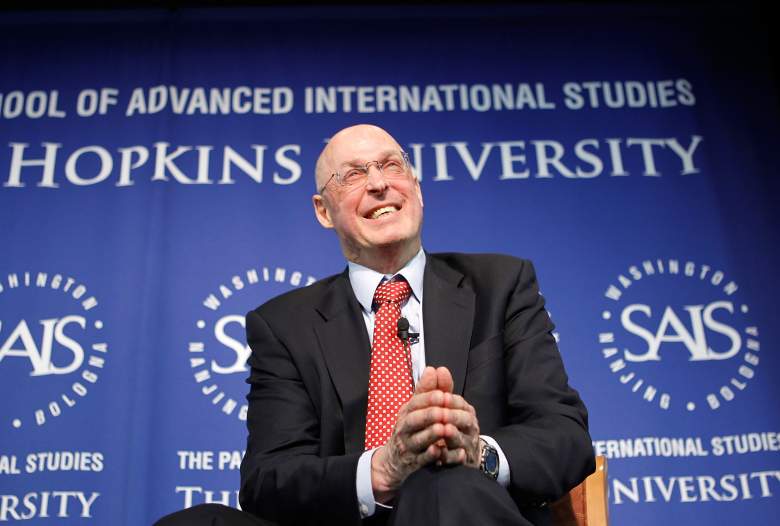
Henry Paulson, former Goldman Sachs employee and George W. Bush’s Treasury Secretary. (Getty)
Though Trump’s “drain the swamp” rhetoric has raised eyebrows about the practice, appointing former Goldman Sachs employees to senior government positions is nothing new. The four Presidents preceding Trump have all had multiple appointees with a Goldman Sachs tenure. Washington Examiner economics writer Joseph Lawler theorized that the bank’s heavy investment in training its employees for a future in the banking industry led to the prominence of its ex-employees, which in turn led to government officials with a decidedly pro-Wall-Street perspective that helped the bank survive and thrive recent economic downturns.